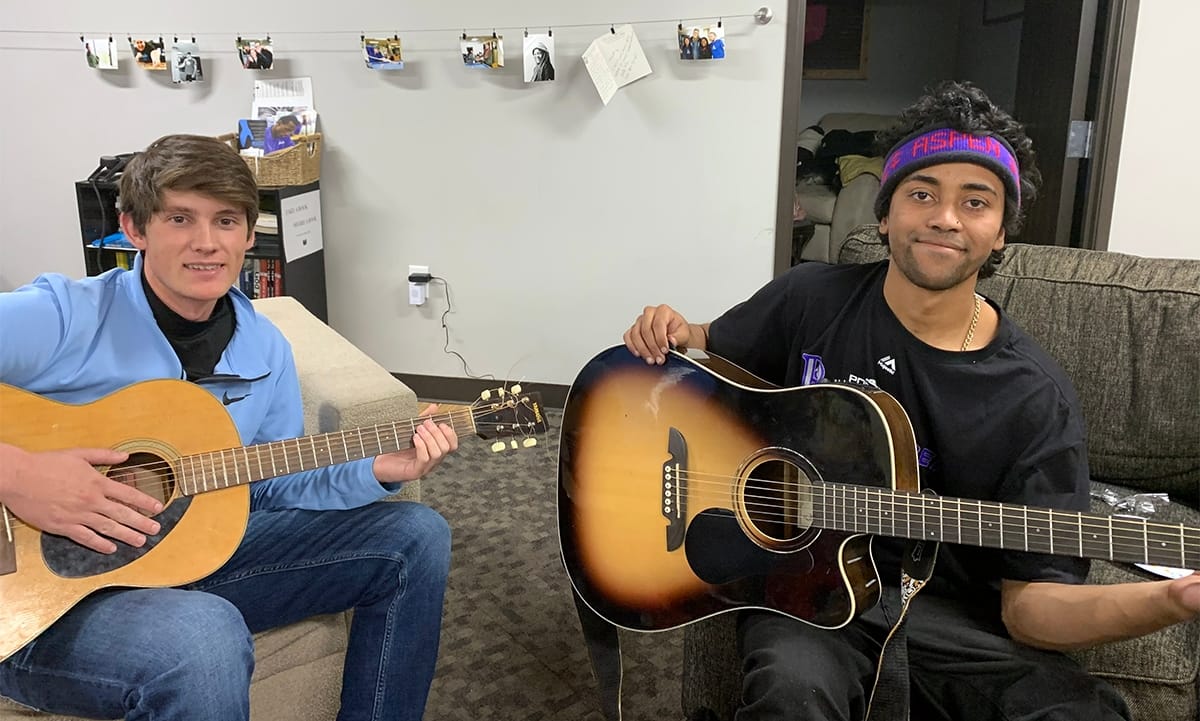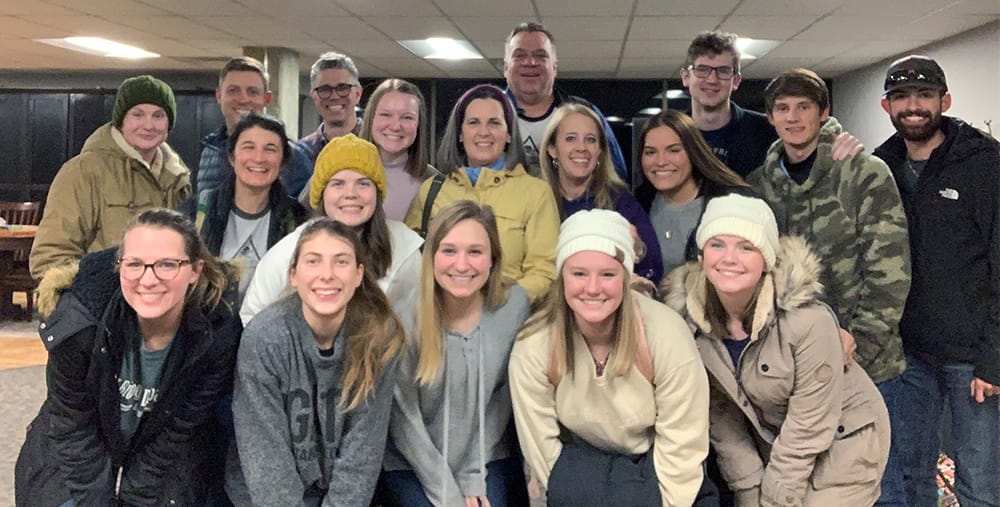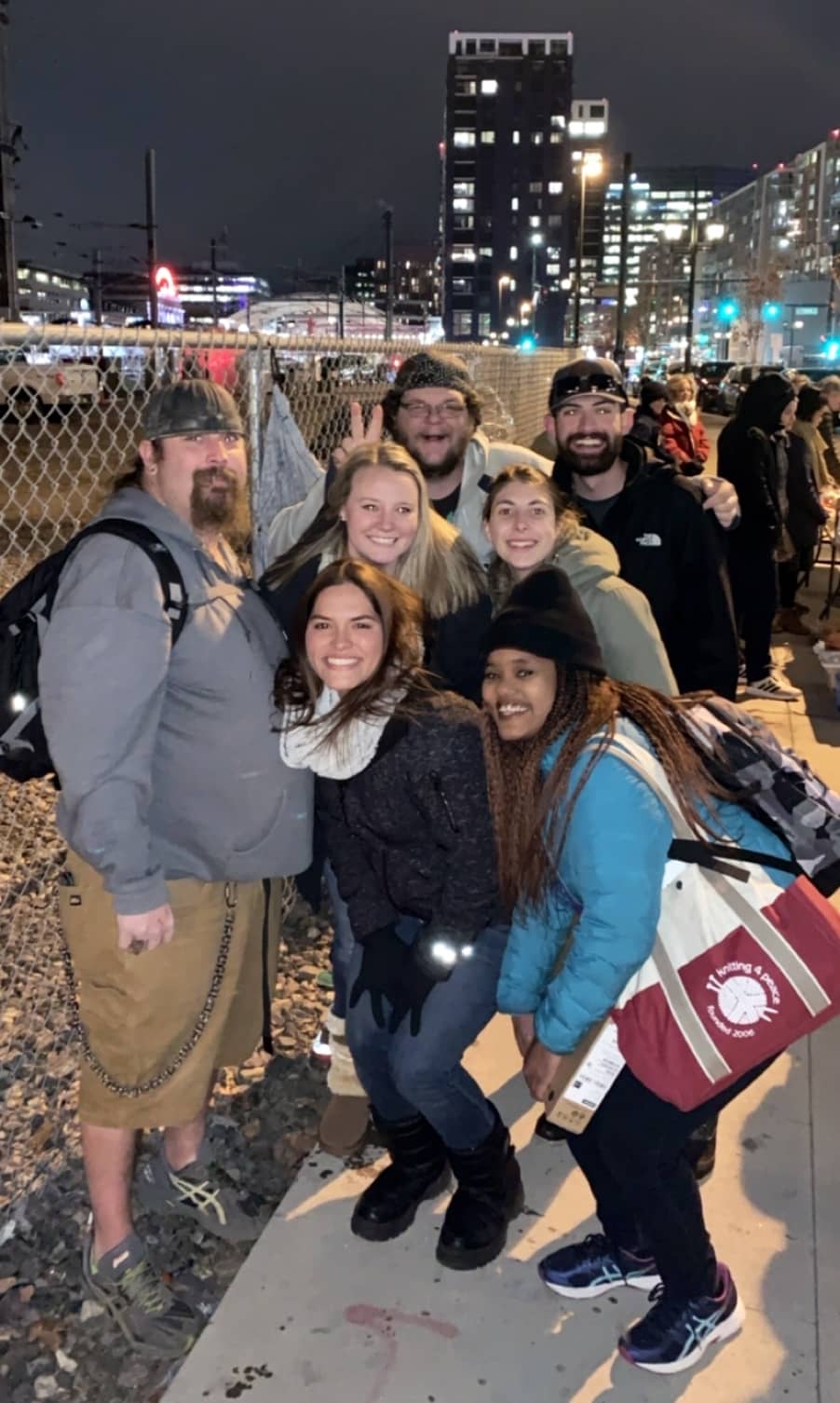Enlarge

Oftentimes, the homeless are also the faceless of society, and basic needs such as health care are a luxury they simply can’t afford. A group of ACU students learned that lesson firsthand during a medical missions trip to Dry Bones Ministry in Denver, Colorado.
Dr. Cynthia Powell (’81), associate professor of chemistry, and Rebekah Mullins, instructor of nursing, took a dozen future healthcare professionals to work with Dry Bones, a ministry founded in 2001 by Matt (’00) and Nikki (Schweikard ’98) Wallace to help homeless youth and young adults in the downtown Denver area. The ministry’s name comes from a prophesy in Ezekiel 37 that describes a valley of dry bones coming to life – a vision of resurrection and hope.
More than 96 percent of the 2019 graduates from ACU's School of Nursing passed the NCLEX licensing exam on their first try. The national average is 88.1 percent and the state average 91.9 percent.
Several faculty-led medical missions trips are offered each year, typically to developing countries with limited healthcare. This one, however, was different, said Mullins.
“We knew this trip would be more of a vision/learning trip than a hands on/doing trip,” she said. “And we definitely learned so, so much. We spent time on the streets learning about how and where the Dry Bones friends and other homeless people in Denver live. We learned about how city development is often orchestrated to deter the homeless from being incorporated into the larger society. And we were also able to spend some time exploring how homelessness affects health. These were very eye-opening conversations for us and our students.”
One of the eye-openers for nursing major Kristin Ramirez (’20) was seeing how difficult it is for homeless people to obtain medical care.
Enlarge

“They don’t have the means to care for themselves when sick,” she said. “Some didn’t have warm clothing or shelter while we were there, and they were expecting a storm. They don’t have money to get necessary medications like insulin, for example. Can you image being homeless and needing insulin?”
Nursing major Addy Boston (’21) also was surprised at some of the things she saw. “We visited a health clinic within a church that many called ‘the feet washing clinic,’ ” she said. “I had never thought about it, but the number of foot injuries in homeless people is very high, which makes total sense because they are walking miles and miles a day on sometimes very old shoes.”
The students visited a needle exchange program that works with addicts to help them remain as healthy as possible despite their addiction.
Enlarge

“We were put in a position to step out of our comfort zone,” Ramirez said. “We talked to people we most of the time turn a blind eye to. It was amazing to see the things they have to go through on a daily basis.”
Boston expressed similar thoughts. “It wasn’t a stereotypical mission trip where you build houses or give away things, but rather we learned from the ministries there how we could take away from what they were doing and do it in our everyday lives. I loved that it was unique and challenged me to think of loving others differently than I ever had before.”
And that was the goal of the trip, said Mullins. “I believe all of us were able to gain a greater understanding of the health challenges related to homelessness. We were also able to develop more empathy for the homeless and to better understand how we can care for them compassionately and holistically in the healthcare setting.”
